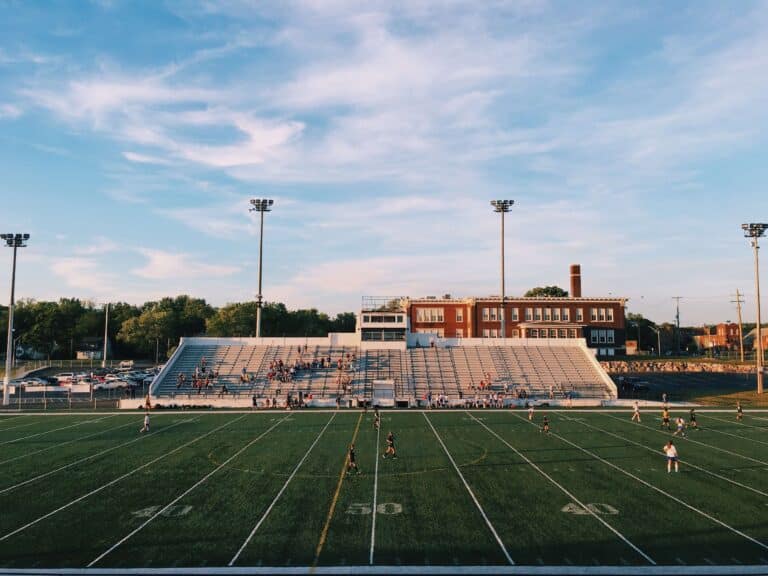In November 2022, St. Cloud, Minnesota’s City Council, rejected recommendations to establish buffer zones between CBD and THC retailers and public spaces occupied by children, like schools and parks.
St. Cloud is one of multiple Minnesota cities to regulate the sale of THC products since low-dose edibles and drinks were legalized statewide in July. In this post, we will cover the parameters already in place by the city of St. Cloud, the failed buffer zone ordinance, and what other cities in Minnesota are doing to regulate hemp products.
Section 430 “Cannabinoid Products”
The city of St. Cloud, Minnesota, passed ordinance Section 430 “Cannabinoid Products” in September of 2022. Its purpose is to “establish licensing regulations for the sale of cannabinoid products derived from hemp as provided in Minnesota.” The ordinance states that it “will be unlawful for any person to sell at retail any cannabinoid products within the city unless the person holds a retail cannabinoid products license.”
All cannabinoid retailers in St. Cloud are now required to apply for a license and pay an annual fee of $500. Retailers violating the ordinance are subjected to fines, loss of license, and jail time.
The THC/CBD Buffer Proposal
A month later, the city planning commission attempted to add more regulations restricting the sale of cannabinoid hemp products. A proposal was drafted to separate youth-oriented areas like parks, schools, and places of worship from cannabinoid retailers.

The original proposal included a quarter-mile buffer between the places mentioned above and retailers offering products containing hemp-derived cannabinoids.
St. Cloud is a city with a population of around 68,000. Placing a quarter-mile cannabinoid hemp-free zone around every school, park, or place of worship wouldn’t leave many potential retail locations to accommodate the rapidly growing industry.
The proposal did not pass; however, the fight between city officials and hemp retailers in Minnesota is far from over.
Should There be Limitations on Where Legal THC Products can be Sold?

The Argument for the THC Retailer Buffer Zone
Proponents of the buffer zone believe that if THC products are sold close to a youth-oriented space, the products will inevitably fall into children’s hands.
The Argument Against
No one wants children taking THC edibles for recreational purposes. However, the proximity of retail stores has little to no correlation to minor substance abuse. A meta-analysis conducted by researchers at UC San Diego found no correlation between medical marijuana dispensaries in school neighborhoods with teen use patterns. The researchers analyzed existing research and found no trends to suggest minors would be more likely to use cannabis because a dispensary moved into their neighborhood. Interestingly, multiple studies referenced in the paper point to decreases in crime and increases in home values after dispensaries are opened close by.
A local CBD business owner told the Star Tribune she was worried the ordinance would incentivize landlords to increase rent on existing retailers knowing they wouldn’t have any options outside the buffer zone.
Those against the ordinance also pointed to the hypocrisy regarding cannabis retailers and other age-restricted businesses. Alcohol and tobacco are illegal for minors but aren’t subjected to quarter-mile buffer zones that would decimate business growth.
Other Cities with Memorandums Restricting THC
St. Cloud City Council rejected the ordinance to help support small businesses and not show favoritism to cannabinoid retailers that would be grandfathered into the proposed buffer zones.
Other cities in Minnesota are taking a different approach to regulating the industry, with some far less welcoming to small cannabinoid hemp businesses.
Waseca
A memorandum in Waseca, Minnesota, is overtly restrictive of new cannabinoid hemp companies. The City Council passed regulations by a slim margin of 4-3 preventing new manufacturers and retailers from moving into town offering low-dose THC edibles and beverages. While the memorandum is temporary, permanent restrictions are set to go in place within one year.
Mankato
After the hemp-derived THC law was passed in Minnesota, Mankato city officials passed an ordinance criminalizing the possession of cannabinoid hemp products for minors. The regulation covers an area not addressed by state legislation.
Austin and Albert Lea City
Austin and Alberta Lea City each passed ordinances requiring hemp-derived THC retailers to obtain an annual license and criminalizing the possession of hemp products for minors. In Austin, retailers offering all cannabinoid hemp products must be licensed.
Our Thoughts on THC Ordinances
The demonization of cannabis products is nothing new. Furthermore, children are commonly used to push government regulations and bans on cannabis products without substantial evidence. While the intentions of the St. Cloud city planning commission and City Council are unclear, the ordinance would have crushed growth and pushed retailers and manufacturers out of the city.
We support regulations regarding hemp-derived products, but they must be reasonable. Quarter-mile buffer zones and banning new cannabinoid hemp businesses aren’t logical responses to Minnesota’s legislation and only hurt small business development. (cannabisbudcans.com)

 Where to Find THC Beverages in the Twin Cities
Where to Find THC Beverages in the Twin Cities